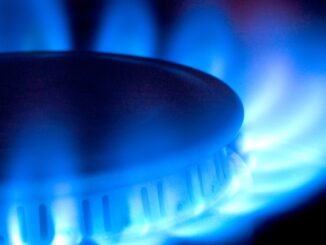
After depleting the U.S. emergency reserve of 235 million barrels of oil bringing it to its lowest level in 40 years, the Biden administration wants to buy up to 3 million barrels of oil for delivery in March 2024 and to release monthly offers to buy that amount of oil for the reserve through May 2024. Biden sold 180 million barrels of emergency reserve oil last year–nearly five times bigger than any previous sale–to lower gasoline prices before the mid-term election, as gas prices hit $5 a gallon in June of 2022. Biden’s Energy Department (DOE) is now willing to buy back oil for the Strategic Petroleum Reserve (SPR) at up to $79 per barrel, when earlier the buyback price was set closer to $70 a barrel. However, that is still about $50 a barrel more than the average price of oil in the reserve, which was $29.70 per barrel. Replenishing the SPR will be a slow and expensive process, taking decades, hindered by a lack of funding and aging infrastructure.
Source: Energy Now
The new solicitation is for sour oil and the delivery will be received by the Big Hill SPR site in Texas. The department has bought nearly 9 million barrels for the reserve at about $75 a barrel. It has also secured the return of nearly 4 million barrels by February from a previous exchange with oil companies, for a total of 12 million barrels. That oil with the 18 million barrels that DOE intends to buy through May will add a total of 30 million barrels if the buybacks go through. But, that is a drop in the bucket towards restocking the millions of barrels Biden sold from the reserve that is supposed to be used for emergencies. President Trump wanted to buy oil for the SPR in 2020 when oil was selling for $25 a barrel, but the Democrat-led Congress would not approve the funds for the purchase. Senator Schumer panned the proposal as a “bailout for Big Oil,” even though now taxpayers will be paying over three times as much per barrel.
According to Deputy Energy Secretary David Turk, physical constraints and maintenance at the network of underground caverns along the U.S. Gulf Coast have limited the amount the Energy Department can purchase to about 3 million barrels a month. The planned life extension maintenance at the reserve, where oil is held in salt caverns on the Texas and Louisiana coasts, is being used as the reason for the slow rate of buying back the oil the Biden administration sold. The reserve currently holds 351.9 million barrels of oil out of a capacity to hold 714 million barrels. The SPR sites are supposed to hold enough backup supply to ensure the United States does not run short of oil, but they are half empty due to Biden’s pre-election exploits. Furthermore, the SPR oil that remains is primarily a quality of oil that most U.S. refiners no longer use due to a retooling that occurred decades ago.
The Gulf Coast salt caverns that were filled with SPR oil in the 1970s to insure against international market manipulation by adversarial countries were designed to have a lifespan of about 25 years. They were built for five drawdowns and refills, and every subsequent use increases the risk that they will dissolve. The DOE, however, indicated that it is not concerned about the structural integrity of the salt caverns. Two of the reserve’s sites in Texas and Louisiana are currently offline for maintenance. DOE’s $1.4 billion modernization program, funded through oil sales, is behind schedule and over budget—with the Biden administration asking Congress for an additional $500 million for the project last year–despite selling SPR oil last year for an average of $95 a barrel.
Conclusion
DOE efforts to refill the SPR have been at a trickle. The Biden administration has brought the U.S. Strategic Petroleum Reserve (SPR) down to a 40-year low–20 days of emergency oil supply, leaving the country vulnerable to oil price shocks and reliant on global exporters like Saudi Arabia, Russia and the rest of the OPEC+ cartel. While the United States is the largest oil producer in the world, it still needs to import oil because of the quality of oil U.S. refiners need. The United States imports the type of oil our refineries need and exports the type that works more efficiently in other countries’ refineries.
Replenishing the SPR will be a slow and expensive process since the oil Biden sold averaged around $30 a barrel. The buyback is being hindered by aging infrastructure with two sites undergoing maintenance and a modernization program that is over budget. The refill will require balance between needing to buy oil and not purchasing too much oil at once, avoiding a market response of spiking prices.



